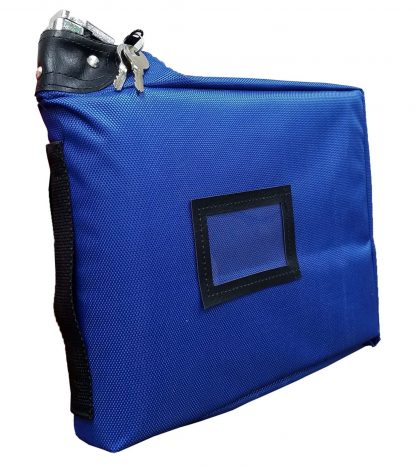If you’re a healthcare worker that handles medical records, you know the value of keeping them safe and secure. But you also know the frustration of having to carry around a large bag that’s bursting with paperwork. It’s not easy, especially when you have to make multiple trips back and forth to the office.
You’re probably wondering how to keep medical records safe while you’re on the move because HIPAA compliance is a thing. The answer is simple: You need a HIPAA-compliant locking bag that will protect patient medical records from prying eyes and sticky fingers.
A Quick Look At Why You Need A HIPAA-Compliant Locking Bag
Protection Against Unauthorized Access
A HIPAA-compliant locking bag can protect your medical records from unauthorized access. If your bag is locked, it’s going to take some effort for someone to break it open and steal confidential medical records.
With a HIPAA-compliant locking bag, you can prevent identity theft and other forms of fraud. Unauthorized access is one of the most common reasons why health care workers fall victim to data breaches.
Convenience
Patient medical records are still within reach with a HIPAA-compliant locking bag because it’s easy to carry around. A HIPAA-compliant locking bag will help you easily carry and access patient medical records when you’re on the move.
Long-term Or Short-Term Storage
A HIPAA-compliant locking bag can also help you keep your medical records safe in different types of environments and situations. If you work in a long-term care facility, you’ll want a HIPAA-compliant locking bag that’s easy to store.
If you’re working in a temporary care facility or at home, you can still keep your medical records secure with a HIPAA-compliant locking bag.
What Is HIPPA Compliance?
HIPPA compliance refers to the rules set forth by the Health Insurance Portability and Accountability Act (HIPAA). The HIPAA rules were created in response to concerns that patients’ health information was being mishandled and shared without their knowledge or consent.
These rules were designed to protect the confidentiality of patients’ health records and to prevent unauthorized access. They apply to any health care provider that handles patient data, including hospitals, doctors, and other healthcare providers, as well as any organization that stores patient data, such as an insurance company or pharmacy.
HIPPA compliance is important for healthcare providers because it protects their patient’s health information from being compromised. It also helps them avoid penalties from the federal government or their patients for not following HIPPA guidelines.
HIPAA compliance is also important for healthcare organizations because they have to comply with the rules in order to be eligible for certain government contracts or grants.
What You Should Consider When Buying a HIPAA Locking Bag

When you’re looking for a HIPAA locking bag for the safe keeping of medical records, it’s important to keep these things in mind.
The first thing that you should look for is lock quality. Make sure that the lock that’s included in the bag is high quality and that you can open it easily with one hand.
The next thing that you want to look at are the pockets. The bag should come with a sufficient amount of different pockets that makes it easy to organize your medical records.
Also, make sure that the material is high quality and durable. You never know when the bag might get damaged or torn, so you need to make sure that it will be able to handle it.
Last but not least, if you’re looking for HIPAA compliance, you should narrow down your search to bags that are made in the USA. American-made bags are more likely to meet all HIPAA requirements compared to foreign-made bags, so it makes sense to buy from a US manufacturer if possible.
What are the Different Types of Locking Bags?
There are many types of HIPAA locking bags for medical records. You can choose from a variety of bags that are made of different materials and have different features and designs.
There are HIPAA-compliant bags that are designed to store and secure different types of medication and medical records. There are opioid medication bags, as well as bags that are made for other types of prescription drugs, and there are bags specifically made for documents only. Which bag you choose should depend on your unique situation, as well as the needs of your patients and healthcare facility.
